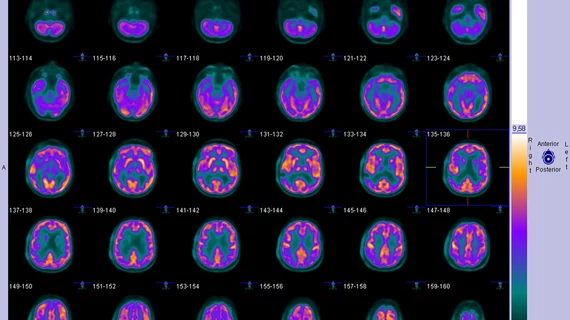FDA calls for investigation into Alzheimer’s drug; imaging group maintains amyloid PET is key
The leader of the U.S. Food and Drug Administration has urged for a federal investigation into the approval of Biogen’s Alzheimer’s drug just days after the health oversight agency narrowed its suggested use for the novel treatment.
Acting Commissioner Janet Woodcock, MD, called on the independent Office of Inspector General to investigate interactions between Biogen and the FDA that led to the controversial June 7 approval of Aduhelm, according to a letter posted Friday. The request noted some communications between the parties “may have occurred outside the formal correspondence process” and could hurt the public’s confidence in the decision.
The imaging community has been paying close attention to the ongoing Aduhelm saga. The Society of Nuclear Medicine & Molecular Imaging supported the FDA’s approval but has been critical of its choice to not mandate amyloid PET imaging for patients seeking treatment. Individuals can also get a lumbar spine puncture to qualify.
And SNMMI, along with the Medical Imaging & Technology Alliance, have both called on CMS to update its PET reimbursement policies to ensure patients can access the drug.
“All clinical trials for aducanumab have included amyloid PET imaging, and it is a key test in diagnosing Alzheimer’s disease,” a spokesperson for SNMMI said Friday over email. “We understand that the FDA is currently investigating the recent approval of Aduhelm, and we will monitor the findings as more information becomes available.”
On July 8, Biogen revealed a label change recommending only patients with early stage Alzheimer’s symptoms should receive Aduhelm. The shift more closely aligns its suggested usage with the patient population it was tested in during clinical trials.
Nearly two million Americans are likely eligible for treatment under the new indication, a large drop from the previously estimated 6 million.

